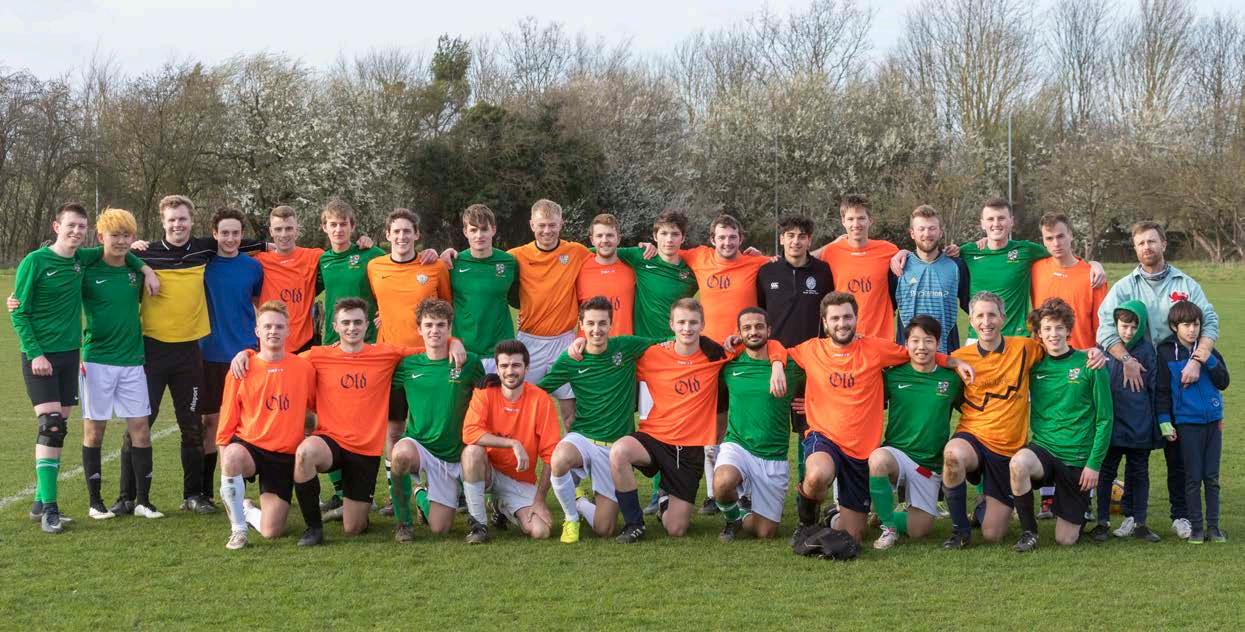Alumni Profiles
Alumni Profiles Jan Gooding (Economics, 1978) By Mark Walsh (English, 1997) If you had only the bald statistics, Jan Gooding’s career would probably seem to describe a smooth arc of success. Childhood in the Bahamas. Economics at Cambridge. Stellar career in business. High-profile charity work. That might be true for a man. For a woman, much less so. And for a gay woman, harder still. ‘It was a battle the whole way,’ says Gooding. ‘ A battle about being a woman and being taken seriously.’ Gooding matriculated at Girton the year before men were admitted to the College. It wasn’t, in her opinion, a particularly welcome change. ‘You cannot imagine how brilliant and bright the women were,’ she said, citing contemporaries such as Emma Thompson (who was at Newnham), Karen Pierce and Sandi Toksvig (at Girton). ‘I promise you, women were still fighting to get places at all. It wasn’t an anti-man thing, it was a pro-sisterhood thing. We were all hungry for our degrees.’ Gooding chose the College partly because it was women-only. She acknowledges that she was ‘not a straight-A student.’ Winning a place at Cambridge had been something of a family obsession: her uncle left his Cambridge university studies to become a pilot in World War II and was killed in a freak accident. Her mother, Gooding recalled, ‘always said to me that she wanted me to fulfil the dream of her brother.’
14 Girton Newsletter
|
Spring 2020
That had looked unlikely during Gooding’s childhood in the Bahamas. That is, until she was set a challenge before a test at school. ‘My mum said, ‘If you come top, you can have a puppy,’’ Gooding remembers. ‘Well, what do you know, I came top and nobody could get over it. Everyone was stunned, not least my mother. In place of getting a puppy, I was told I was going to take the exam to go to school in England.’
‘I didn’t know it,’ Gooding says, ‘but I’d given myself the worst possible chance.’ Wilkinson asked her to justify her private education and she told him that because her family had lived abroad and never paid British taxes, it had only been right that she had paid for her education.
Arriving at Benenden, in Kent, a private school for girls, Gooding recalls, ‘I had never been in the cold before. I’d never seen winter. I didn’t know what had happened to me. I was so homesick and unhappy.’
After battling through school and university—her mother sadly died in her second year—Gooding headed for London after graduating in 1981. ‘I had this idea that I wanted to go into business,’ she said. An initial stint at a management training scheme with Selfridge’s didn’t go well, ‘It was really boring. Can you imagine a whole day on how to authorise a cheque?’ That was, until she rotated into the advertising section.
But she stuck it out, and when the time came for university Gooding tried to maximise her chances by applying to Girton—her school had ties with the College—and by opting to study Economics, rare for a woman at the time. But the calculation almost backfired. She was interviewed by Frank Wilkinson (an Employment Economist who left school at 15 and had been a farm labourer) and, Gooding says, ‘His policy was to recruit mostly from state schools.’
‘I remember him smiling,’ she says. ‘Looking back on it, that was probably the moment I got my exhibition.’
‘I was shown ads from the ’20s, ’30s, ’40s in a wonderful old guard book that showed how the brand’s story had changed over time.’ The images hooked her. In 1989, at age 30, she earned a place on the board of an ad






